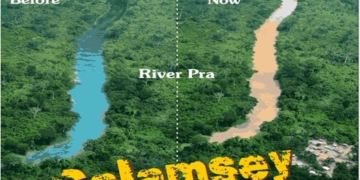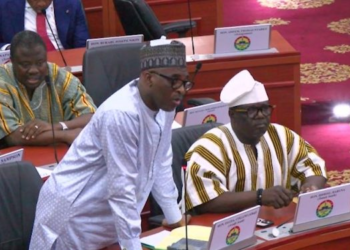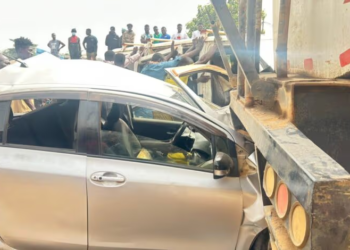Yaw A. Attah Arhin, the WASH Technical Specialist at World Vision Ghana, has called on the government to declare the state of the nation’s water bodies as a state of emergency.
Speaking on ABC News Ghana on Thursday, September 5, 2024, Arhin highlighted the severe impact of illegal mining, commonly known as galamsey, on Ghana’s water bodies.
“Stop it, and then let preserve our water bodies. Going forward lets declare a state of emergency and declare these water bodies as … where no body goes near.”
He noted that the activities have significantly hindered the Ghana Water Company Limited’s (GWCL) ability to provide safe and clean water to Ghanaians.
“I think that going forward, Govt must have the will to fight this and win the battle. Priorities the fight against galamsey in order to be able to protect and preserve our water bodies.”
Arhin expressed deep concern about the health risks associated with the pollution of water sources.
“Health risks associated with the pollution are so much. It’s something that we should be worried about,” he stressed.
He urged the government to prioritize the fight against galamsey, stating that winning this battle is crucial to protecting the country’s water resources.
In addition, Arhin emphasized the need to strengthen institutions mandated to manage Ghana’s water resources, particularly the Water Resources Commission and the Environmental Protection Agency (EPA).
He believes that these institutions must be empowered to tackle the crisis effectively. He also dismissed the concept of community mining, describing it as another form of galamsey and calling for its immediate cessation.
“We should stop it,” Arhin stated firmly.
The dire state of water bodies in Ghana is not new.
In 2017, the Water Resources Commission reported that over 60% of the nation’s water bodies had been contaminated, particularly in the southwestern regions where illegal mining activities are rampant.
The Ghana Water Company Limited has also warned that this contamination has led to significant water shortages in several areas, exacerbating the crisis.
As the situation worsens, many fear that Ghana could be forced to import water by 2030 if decisive action is not taken. The continued destruction of water bodies has been seen by many as a failed fight by the current government, putting the nation’s future water security at risk.

































